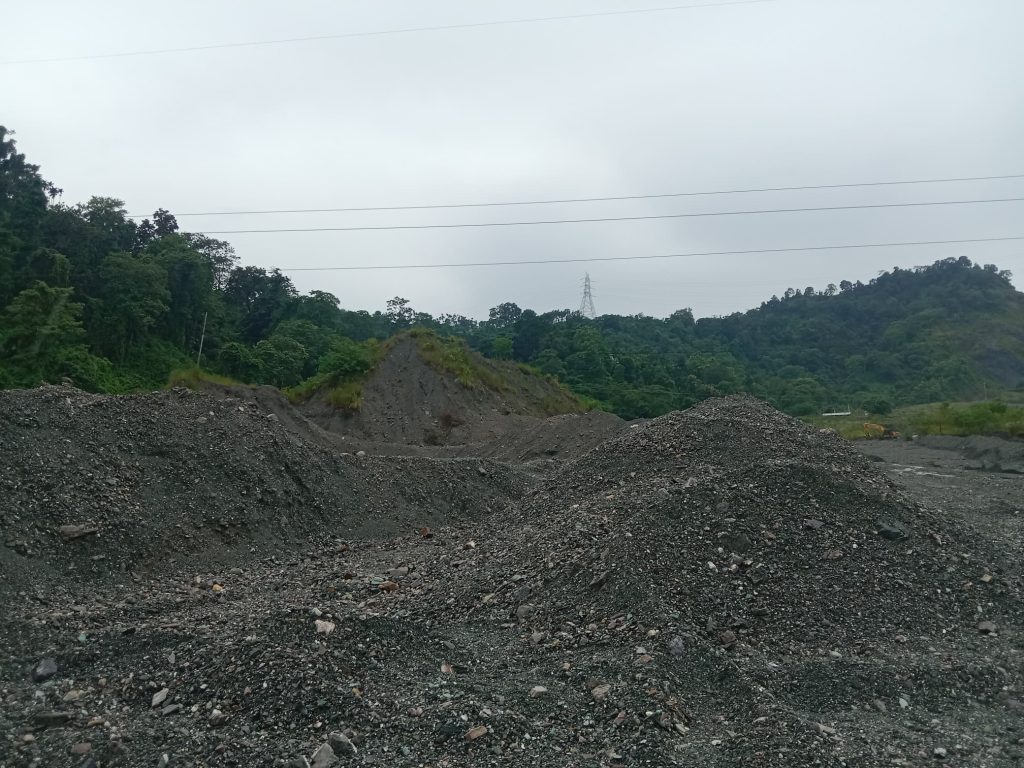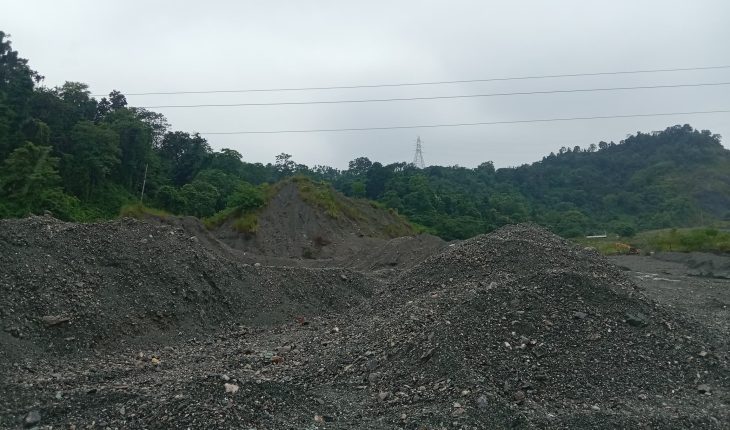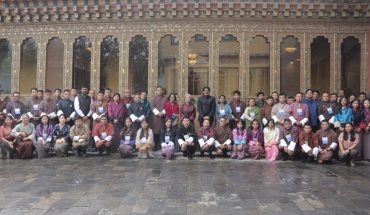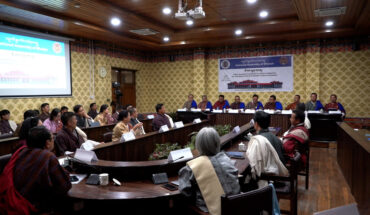
DAWA ZANGMO | Phuentsholing
The South Asia Subregional Economic Cooperation (SASEC) Transport, Trade Facilitation, and Logistics Project (TTFLP) is underway in Phuentsholing, with major works focused on Bhawanijhora to improve flood protection and secure a vital trade corridor.
Supported by the Asian Development Bank (ADB) funding loans and grant and the Royal Government of Bhutan (RGoB), the project is designed to strengthen transport connectivity and logistics, ensuring reliable access to industries and markets.
Bhawanijhora, located along the Phuentsholing to Pasakha bypass road, has long been vulnerable to flash floods and landslides during the monsoon season.
Repeated damage to this section of road has disrupted industrial transport and caused significant economic losses.
The bypass serves as a lifeline for the Pasakha Industrial Estate, which houses many of Bhutan’s major export-oriented industries.
According to the Ministry of Infrastructure and Transport (MoIT), the TTFLP is a critical intervention to address these challenges through flood protection walls, slope stabilization, and river training works.
Karma Norbu, Project Engineer from MoIT said, “Bhawanijhora has been one of the most challenging stretches for transport and trade in Phuentsholing. The recurring floods have caused significant economic losses over the years. This project will ensure a reliable and resilient trade route for Bhutan.”
The works at Bhawanijhora include the construction of flood protection structures, road strengthening, and engineering solutions aimed at climate resilience.
Key interventions consist of riverbank protection and training works to manage water flow during heavy rains, slope stabilization to prevent landslides and erosion, and road realignment and upgrading to withstand future climatic impacts.
These measures are expected to provide long-term safety for commuters, reduce road closures during the monsoon season, and safeguard the movement of goods to and from the Pasakha Industrial Estate.
The TTFLP in Bhutan forms part of the larger SASEC program. The initiative promotes regional economic cooperation, with Bhutan’s projects focused on strengthening cross border trade infrastructure.
In Phuentsholing, the TTFLP complements other SASEC supported facilities such as the Mini Dry Port and the integrated check post, both aimed at improving customs processes and reducing congestion.
An ADB representative, Tshewang explained that, “The TTFLP is more than an infrastructure project. It is a key enabler of Bhutan’s participation in regional supply chains and a vital support for the country’s export-oriented sectors.”
Pasakha Industrial Estate remains one of the largest industrial hubs in Bhutan, producing cement, ferroalloys, steel, and other products for export.
The estate’s growth and efficiency have often been affected by unreliable road connectivity. During the monsoon months, industries faced delays in transporting raw materials and exporting goods due to flooding in Bhawanijhora.
With the completion of the TTFLP works, industries in Pasakha are expected to benefit from more stable transport routes.
A representative from the estate said, “Every monsoon season used to be a time of uncertainty. The road closures meant delays, increased costs, and risks to goods and personnel. The ongoing works at Bhawanijhora give us hope for more secure connectivity.”
The project is financed through a combination of loans and grants, with the Asian Development Bank providing a major share of the funding and the RGOB contributing through counterpart financing.
ADB has highlighted Bhutan’s trade facilitation as a regional priority, with particular emphasis on climate resilient infrastructure.
The collaboration reflects the importance of regional development partnerships and Bhutan’s commitment to strengthening its logistics systems.
Upon completion, the Bhawanijhora works are expected to provide uninterrupted road connectivity to the Pasakha Industrial Estate, reduce flood related trade disruptions, and strengthen Bhutan’s integration with regional trade under the SASEC framework.
ADB representative, Tshewang noted that the TTFLP will serve as a model for other climate resilient projects in the region.
The SASEC TTFLP works at Bhawanijhora represent a significant step in addressing long standing challenges faced by Phuentsholing’s trade corridor.
By improving flood protection and strengthening road resilience, the project is expected to secure reliable connectivity for industries and contribute to Bhutan’s role in regional trade.
An ADB statement summarized the broader impact, “Sustaining trade and transport connectivity in Bhutan is not just about building roads. It is about building resilience, enabling industries, and fostering cooperation across South Asia.”





